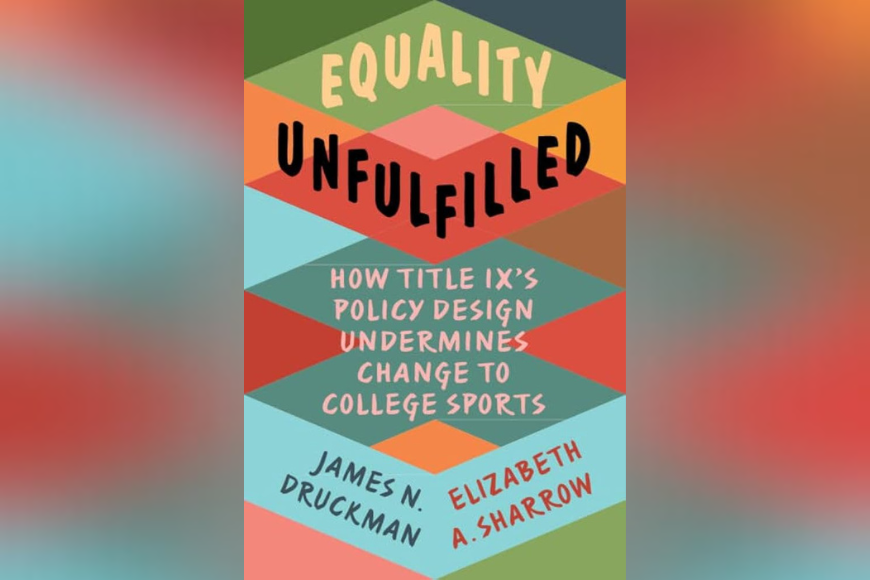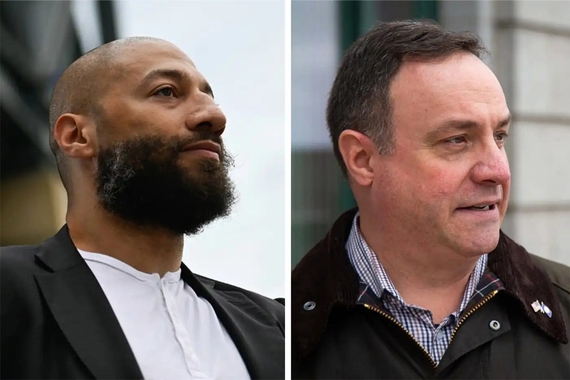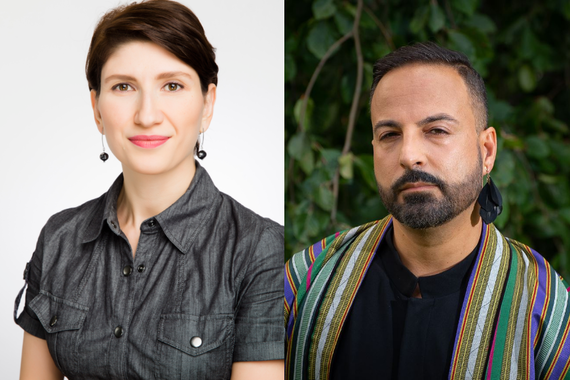Strong Base for Future Development
Academic Journey at University of Minnesota
Libby Sharrow, PhD 2013, began their education at the University of Minnesota, Twin Cities more than a decade before completing her doctoral degree in political science. Sharrow graduated with a BA in political science in 2002, afterwards becoming the Assistant Varsity coach for the University of Minnesota Women’s Rowing Team until 2007. Her first graduate program was at the Humphrey School of Public Affairs, from where they graduated with an MPP in Gender, Law, and Public Policy in 2009.
While at Humphrey, Sharrow contemplated what to do with their Master’s, ultimately deciding to pursue a PhD in political science. Though many students choose to leave the school at which they receive a previous degree to diversify their training and network, Sharrow knew staying was the right choice. “I thought about going to other programs,” they reflected, “but I knew how unique the training was at Minnesota, especially the kind of training I was hoping to get there, particularly around studying gender and race in politics.”
Beyond the academics, a key component of her grad school experience was the community they and their peers created within the department. Many memories of grad school for them include sitting around with other students from all subfields, having both formal and informal conversations, where they could all learn from each other. “Rather than becoming sort of narrow and particular,” Sharrow reflected, “I felt like my training and intellectual space at Minnesota nurtured expansiveness and creativity.” The overall training Sharrow received in the program prepared her to be well-rounded in the field and able to engage in a variety of conversations across the discipline, not just the fields in which she was specializing.
Prepared for a unique position
Before defending her dissertation on the policy history of Title IX, Sharrow was offered a position at University of Massachusetts (UMass), Amherst, where she is still on faculty. The position at UMass was unique when compared to others—it was a joint appointment listed in the Departments of History and Political Science, specifically looking for someone to teach classes on the history of public policy. This rare position was on the market at an opportune moment, as it was a perfect fit for Sharrow’s background and interests.
Taking the time in her intellectual development to learn to think as an interdisciplinary scholar and to ask questions they thought would be relevant across academic conversations “marked me as a non-traditional political scientist from the start,” she reflected. “There’s space for people who do archival research and think historically about politics, but it’s not the main [approach].” Her overall efforts put Sharrow in a position to effectively walk into the role at UMass to teach cross-listed courses, advise graduate students in a variety of disciplines, and teach doctoral courses from the start.
Sharrow held the joint appointment until their tenure decision year. As UMass and the departments were undergoing many changes, Sharrow was part of a faculty cohort that moved from political science into the growing UMass School of Public Policy where they helped found a new undergraduate major, and build a larger master’s program.
Additionally, she has sought out new ways to contribute to university life and find additional space to evolve and co-evolve within the institution. Last January, Sharrow accepted an appointment as the Director of Faculty Research at the Institute for Social Science Research in the UMass College of Social and Behavioral Sciences. In this position, they provide support in writing successful grants, host research panels and talks, and contribute to the intellectual life on campus.
Culmination of education and experience
One of Sharrow’s most remarkable recent feats, however, is the publication of her first book, Equality Unfulfilled: How Title IX's Policy Design Undermines Change to College Sports (Cambridge University Press), co-authored with James Druckman.
The book is a 50-year retrospective on the impacts of Title IX of the Education Amendments of 1972, a landmark piece of civil rights legislation that outlawed sex discrimination in educational institutions in the US. “There has been relatively little social science assessing how well that law has worked,” said Sharrow. With the book, their goal was to “hold it up to empirical assessment using the tools of social science.”
Though the 50-year mark was an important moment, Sharrow began thinking about Title IX during their first year as an undergraduate when they joined a club rowing team. When the year ended, it was announced that women’s rowing would be added to the intercollegiate athletics roster as a part of a Title IX compliance initiative. Sharrow had no context at that time for what that meant and how it fit into a longer historical narrative. Nor did she know how it would change the course of their life, not merely with regard to their athletic and coaching careers, but also by inspiring a sequence of questions about the politics of public policy and the meaning of policy implementation in the lives of constituents that have fueled her scholarly research.
Sharrow has tackled various questions about Title IX’s history and its impacts beyond her dissertation and this book. This research is unique, however, in that Druckman and Sharrow delineate not only Title IX’s impacts and limitations, but also seek to identify what has prevented major change to college sport. Furthermore, the book uses unique public opinion research on stakeholders within the system – current college athletes, coaches, athletic administrators, and the American public – and theorizes them as potential agents for policy change.
The political science graduate program at the University of Minnesota helped Sharrow prepare for their career in that their dissertation was a launching pad for this book. However, the values of the program for Sharrow extend far beyond this.
One of the most clear benefits from the program for Sharrow was being broadly trained. “I remember being encouraged to take a lot of different classes, including in our methods training,” Sharrow reflected. “The base was strong, both in methods and in the study of political science.” Having broad-based training helped her learn how to ask many types of questions and determine how to answer them, as well as how to collaborate with different types of folks, and to keep learning from others. This was the base that helped her launch her career in the unique, exciting way they have, and what has allowed them to further develop their skill set to continue growing.


